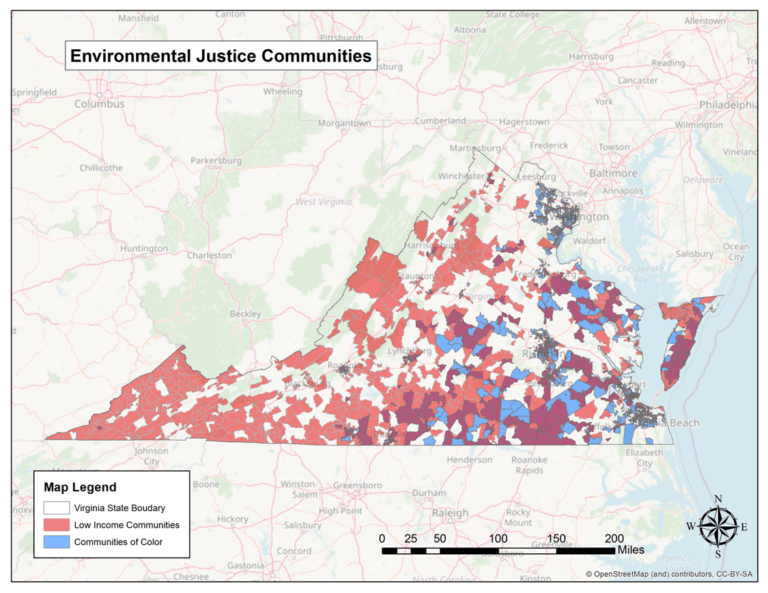Virginia’s Department of Environmental Quality (DEQ) has released draft guidance about environmental justice (EJ) in the permitting process. This draft guidance describes how the DEQ will integrate EJ into its review process for certain “permits of concern” when the proposed action is in an EJ community. By focusing on places where existing EJ concerns intersect with certain permits, the DEQ’s focus may appear limited, but its potential implications could be broad.
Although not intended as a means to deny permits, this guidance — and the lack of a clear framework and tools — may generate additional delays and uncertainty for permit applicants. Industrial and manufacturing operations, solid waste facilities, and others operating in the state may wish to review their proximity to EJ communities and begin assessing EJ concerns now to prepare for compliance.
Key points to know about the Virginia DEQ draft EJ guidance
“Fair treatment” and “meaningful involvement” are two central pillars of EJ, as defined by the 2020 Virginia Environmental Justice Act. The draft guidance focuses on documenting these pillars as a part of DEQ permitting requirements.
- Fair treatment means that no group of people bears a disproportionate share of any negative environmental consequence.
- Meaningful involvement means that affected and vulnerable communities are incorporated into environmental decision-making processes.
The Virginia Environmental Justice Act and the draft DEQ guidance define EJ communities based on income and race, not exposure to environmental stressors. The draft guidance notes that 53% of Virginia’s geography and 59% of its population constitute EJ communities.

The draft guidance primarily targets “permits of concern” — major source and some energy air permits; individual permits associated with water, wastewater, or wetlands; and certain types of solid waste facilities — although it gives the DEQ the option to apply the guidance at its discretion.
All permits of concern located in an EJ community will be subject to “meaningful involvement” requirements and evaluated for “a potential disproportionate share of any negative environmental consequence.”
- Meaningful involvement means an EJ coordinator from the DEQ Office assigned to the permit will contact “known community contacts.” It is unclear how contacts will be identified. If community contacts express “interest, concern, or opposition to the project,” DEQ will require the permit applicant to engage the community in ways “tailored to their interest and needs.”
- The DEQ will screen permits of concern in EJ communities for disproportionate impact. The process and requirements differ by medium.
- If a disproportionate impact is identified, the applicant must address fair treatment. This may involve mitigation, supporting beneficial community projects, or enhanced scrutiny by the DEQ.
The draft guidance states that the DEQ will not automatically deny permits determined to disproportionately impact EJ communities. Instead, the draft guidance suggests that the DEQ will introduce new regulatory requirements that shape how the agency and permit applicants approach the public engagement process and account for potential EJ concerns in project design.
How to take action
Haley & Aldrich recommends evaluating the potential presence of EJ concern in communities early and assessing potential EJ impacts prior to submitting any permit applications. For more on how to assess EJ concerns related to your business and operations, please see our recent article: “Environmental justice brings a new dimension to due diligence and risk mitigation.”
Have questions? Interested in exploring the potential implications of this guidance for your business? Reach out to the authors below.
Published: 5/22/2023
- Aerospace
- Energy
- Oil and gas transmission
- Electric transmission and distribution
- Manufactured gas plants
- Industrial and manufacturing
- Manufacturing
- Mining
- Contaminated site management
- Environmental due diligence
- Environmental risk assessment
- Sustainability
Authors

Technical Expert

Senior Technical Expert, Hydrogeologist

Principal Consultant




